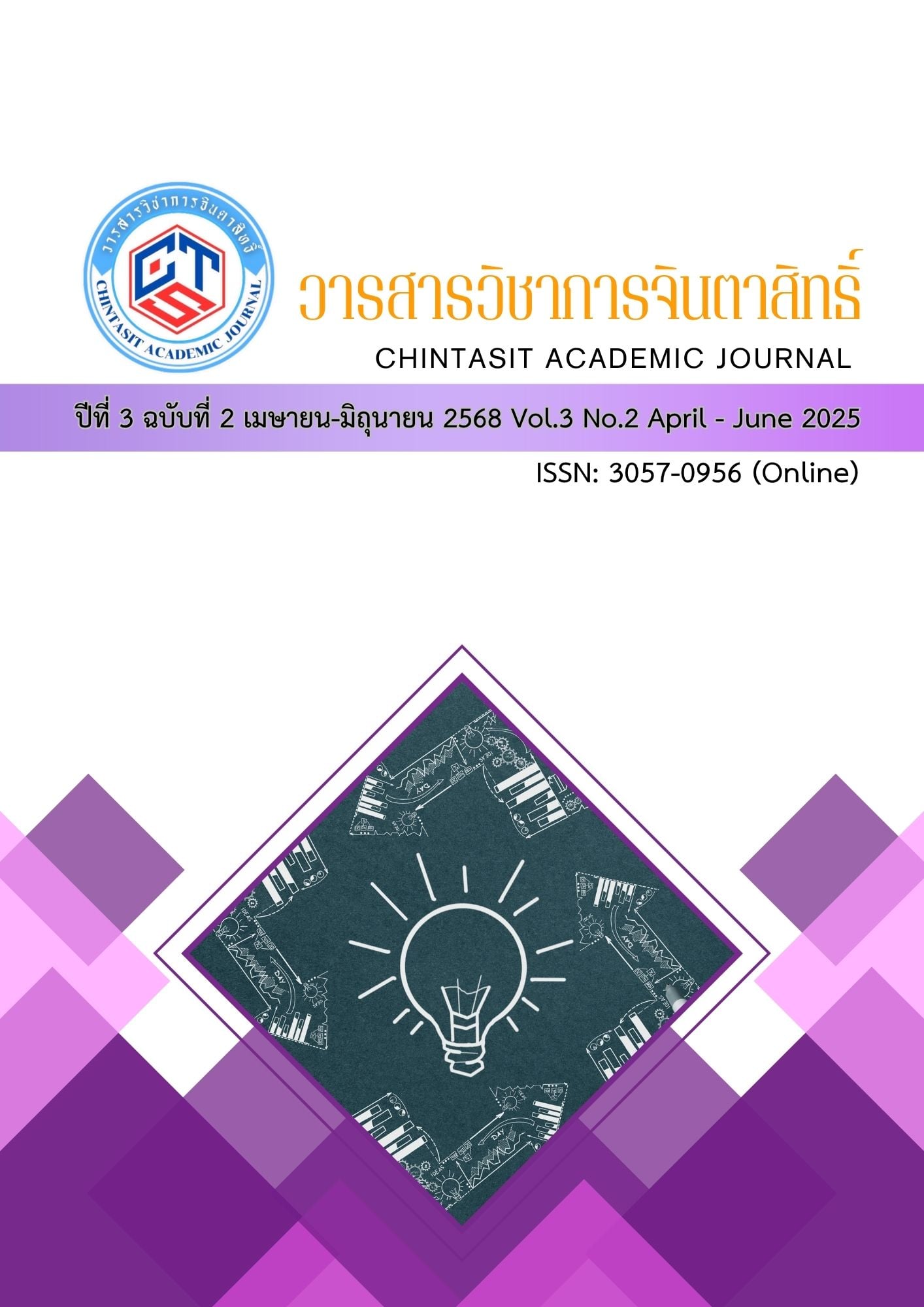A REINTERPRETATION OF THE SUFFICIENCY ECONOMY PHILOSOPHY IN RELIGIOUS AND PHILOSOPHICAL DIMENSIONS FROM A DEVELOPMENT FRAMEWORK TO A PHILOSOPHY OF LIFE
Main Article Content
Abstract
This academic article proposes a reinterpretation of the Sufficiency Economy Philosophy (SEP) that extends beyond its conventional understanding as a mere economic model or rural development policy. It systematically analyzes and synthesizes the connections between SEP and its deeper religious and universal philosophical foundations. This documentary research reviews the royal speeches of King Bhumibol Adulyadej, concepts from key Thai scholars, and draws parallels with core Buddhist principles, Aristotelian virtue ethics, and critical theories of modern capitalism. The study reveals that SEP is not merely a development framework but a universal "philosophy of life." Its core principles strongly align with the "Middle Path" (Majjhimā Paṭipadā) in Buddhism, which navigates between the extremes of consumerism (kāmasukhallikānuyoga) and deprivation (attakilamathānuyoga). Furthermore, its principle of moderation reflects Aristotle's concept of "the Golden Mean," leading to "Eudaimonia" or human flourishing. Concurrently, SEP serves as a philosophical response to the "alienation" and "false needs" in modern society critiqued by thinkers such as E.F. Schumacher and Herbert Marcuse. This reinterpretation suggests that SEP holds the potential to be a viable alternative framework for sustainable development and human well-being on a global scale, challenging the dominant development paradigm focused solely on material growth. However, its application in Thai society faces challenges from its political instrumentalization and superficial interpretations, necessitating the promotion of a genuine philosophical understanding.
Article Details

This work is licensed under a Creative Commons Attribution-NonCommercial-NoDerivatives 4.0 International License.
Chintasit Academic Journal is licensed under a Creative Commons Attribution-NonCommercial-NoDerivatives 4.0 International (CC BY-NC-ND 4.0) licence, unless otherwise stated. Please read our Policies page for more information on Open Access copyright and permissions.
References
ประเวศ วะสี. (2552). เศรษฐกิจพอเพียงและประชาสังคม: แนวทางพลิกฟื้นเศรษฐกิจสังคม. หมอชาวบ้าน.
พระพรหมคุณาภรณ์ (ป. อ. ปยุตฺโต). (2551). พุทธธรรม ฉบับปรับปรุงและขยายความ. สำนักพิมพ์ผลิธัมม์.
สำนักงานคณะกรรมการพัฒนาการเศรษฐกิจและสังคมแห่งชาติ. (2007). Sufficiency Economy Philosophy: A Legacy of Sustainable Development from Thailand. NESDC.
นิธิ เอียวศรีวงศ์. (2549). วัฒนธรรมความจน. มติชน.
Aristotle. (2004). The Nicomachean Ethics (J. A. K. Thomson, Trans.; H. Tredennick, Rev.). Penguin Classics. (Original work published ca. 350 B.C.E.)
Jackson, T. (2017). Prosperity without growth: Foundations for the economy of tomorrow (2nd ed.). Routledge.
Marcuse, H. (1964). One-dimensional man: Studies in the ideology of advanced industrial society. Beacon Press.
Nussbaum, M. C. (2011). Creating capabilities: The human development approach. The Belknap Press of Harvard University Press.
Payutto, P. A. (1993). Buddhist economics: A middle way for the market place. Buddhadhamma Foundation.
Puntasen, A. (2007). Sufficiency economy: A contribution to the theory of development. Journal of Social Research, Chulalongkorn University, 30(1), 1-28.
Schumacher, E. F. (1973). Small is beautiful: Economics as if people mattered. Blond & Briggs.
Sen, A. (1999). Development as freedom. Oxford University Press.
Sivaraksa, S. (1999). Global healing: Essays and interviews on structural violence, social development, and spiritual transformation. Thai Inter-Religious Commission for Development.
Baker, C., & Phongpaichit, P. (2009). A history of Thailand (2nd ed.). Cambridge University Press.
Byung-Chul Han. (2017). The burnout society. Stanford University Press.


